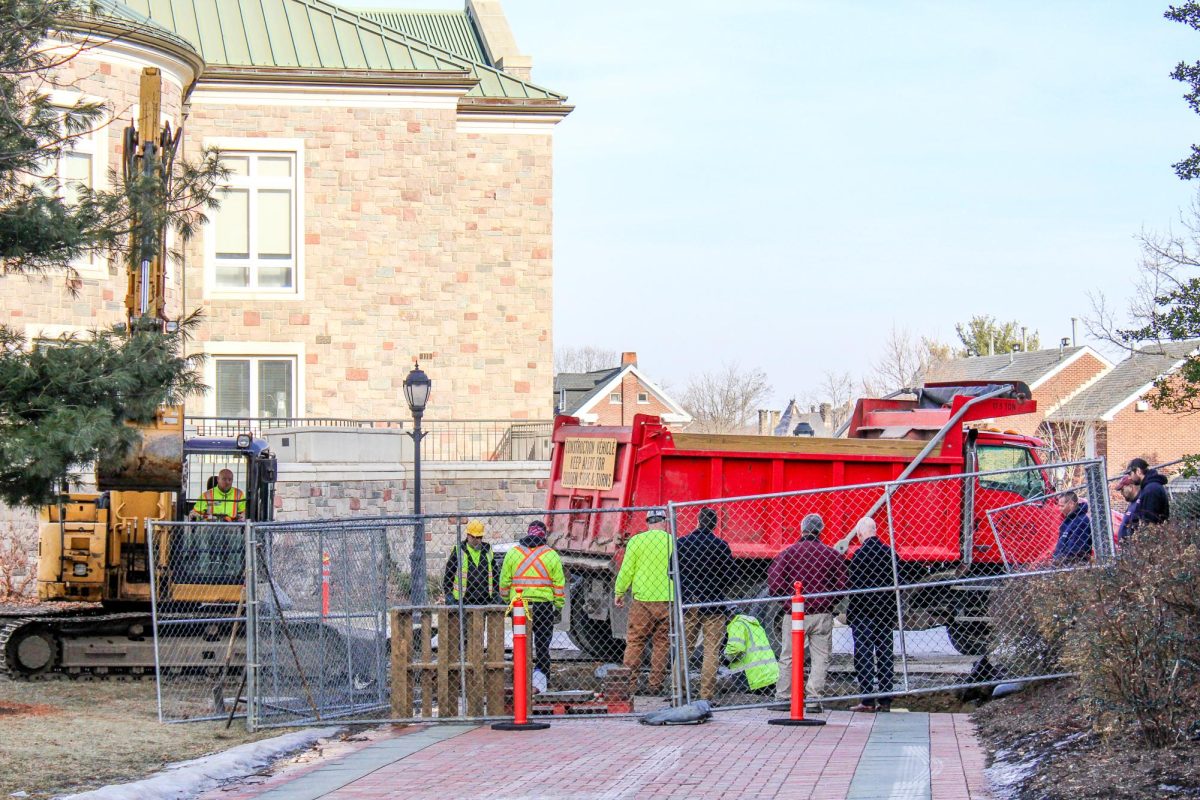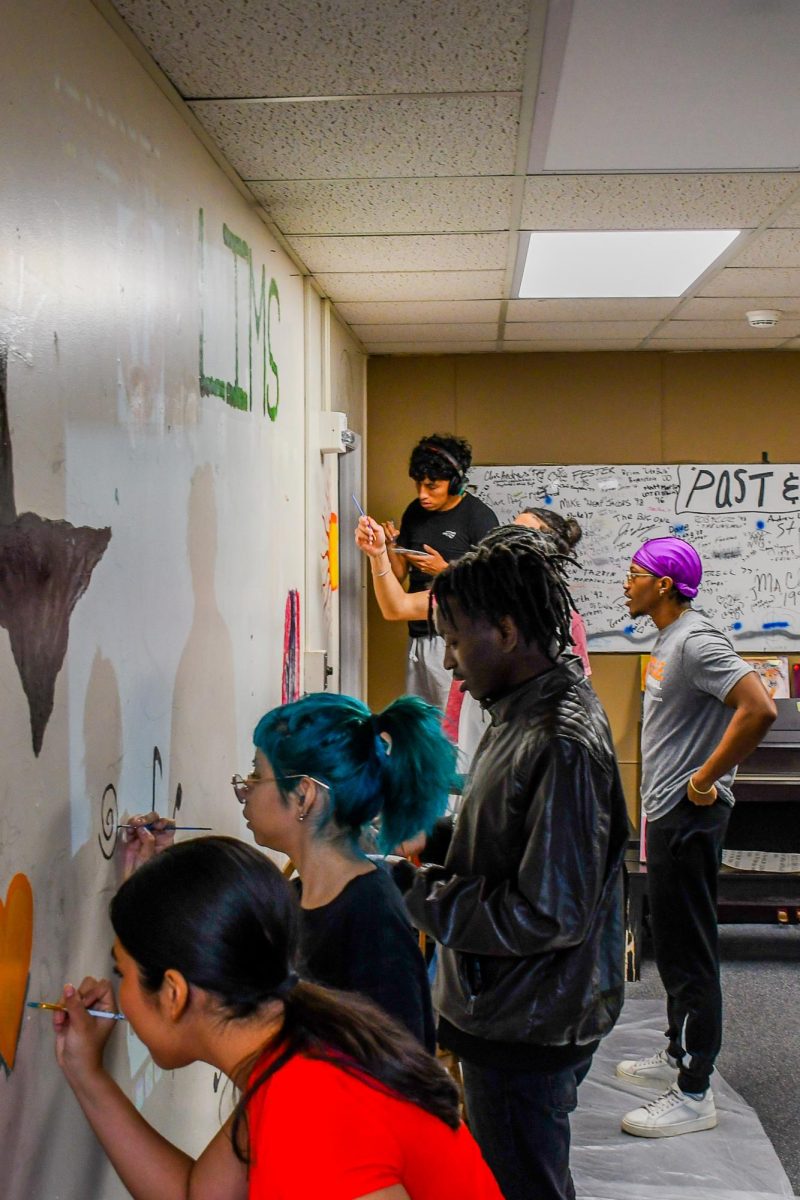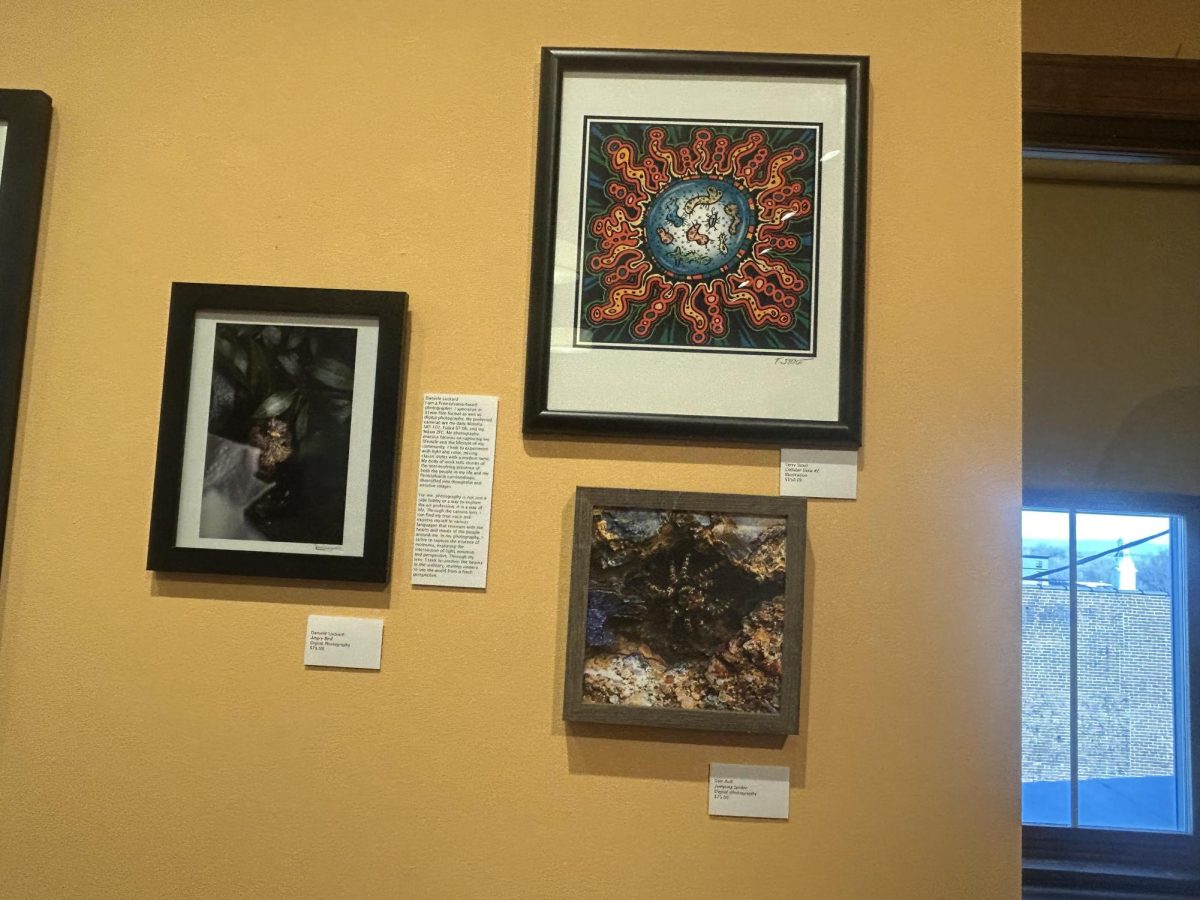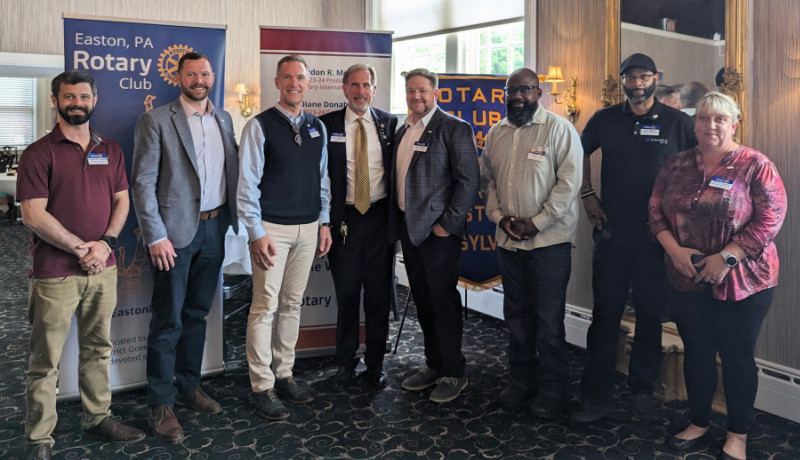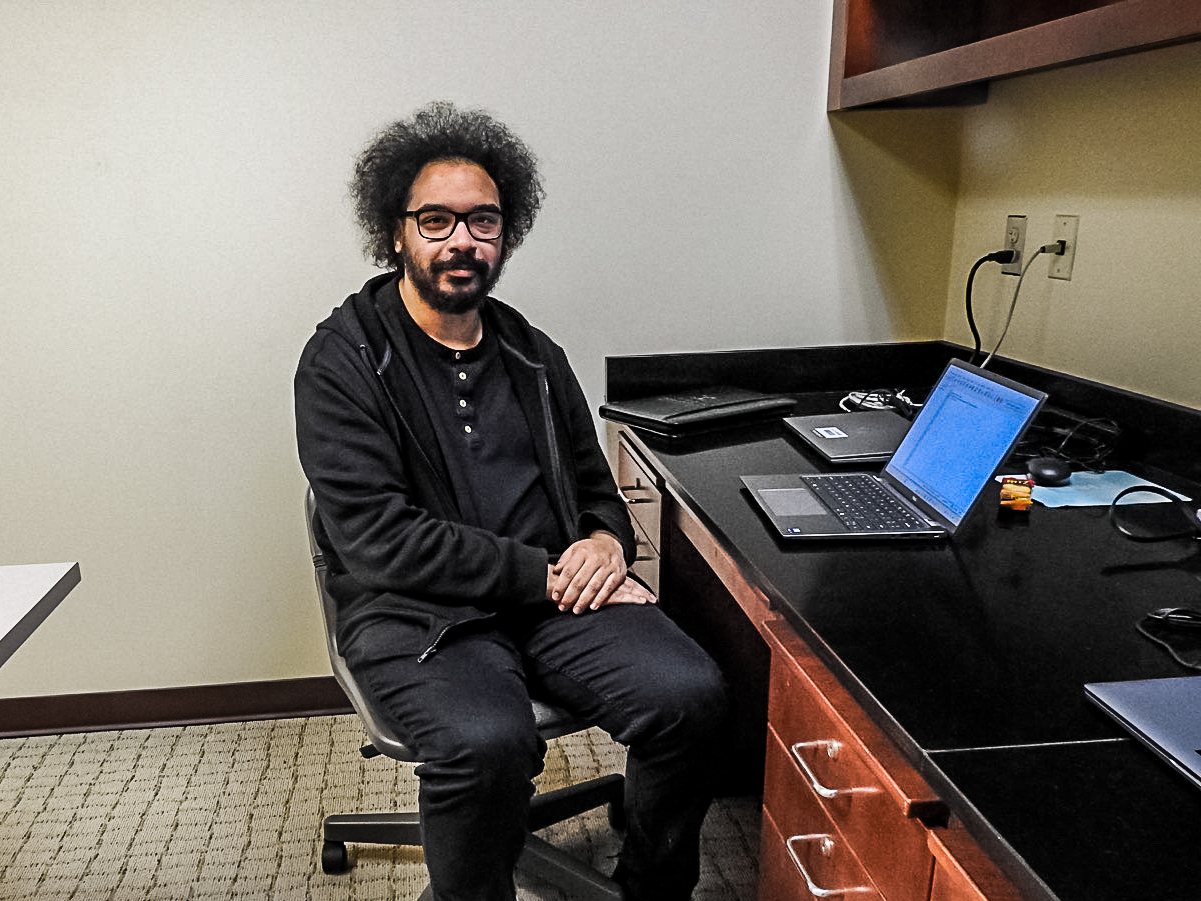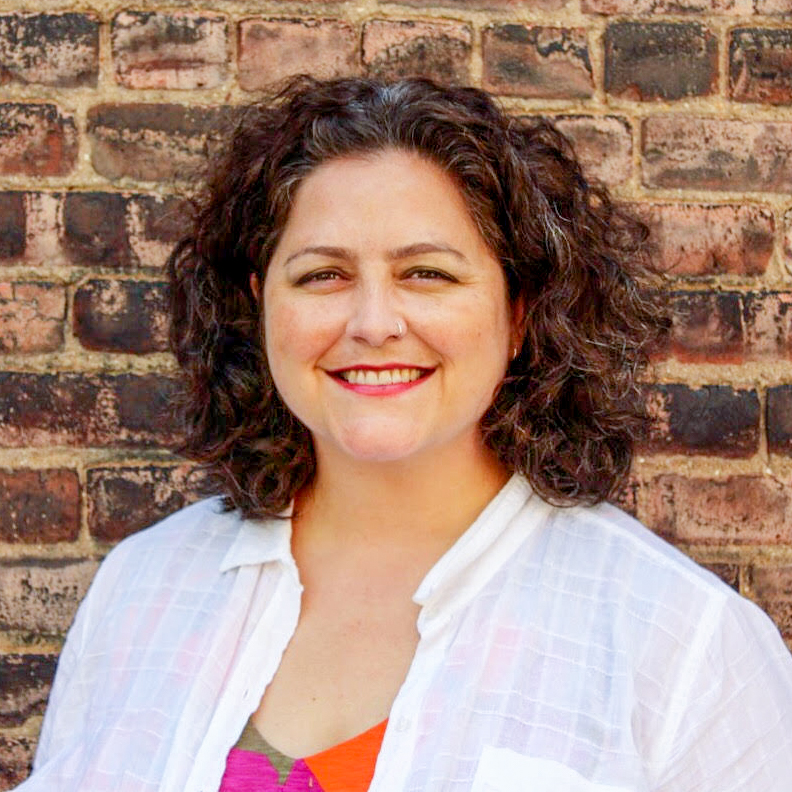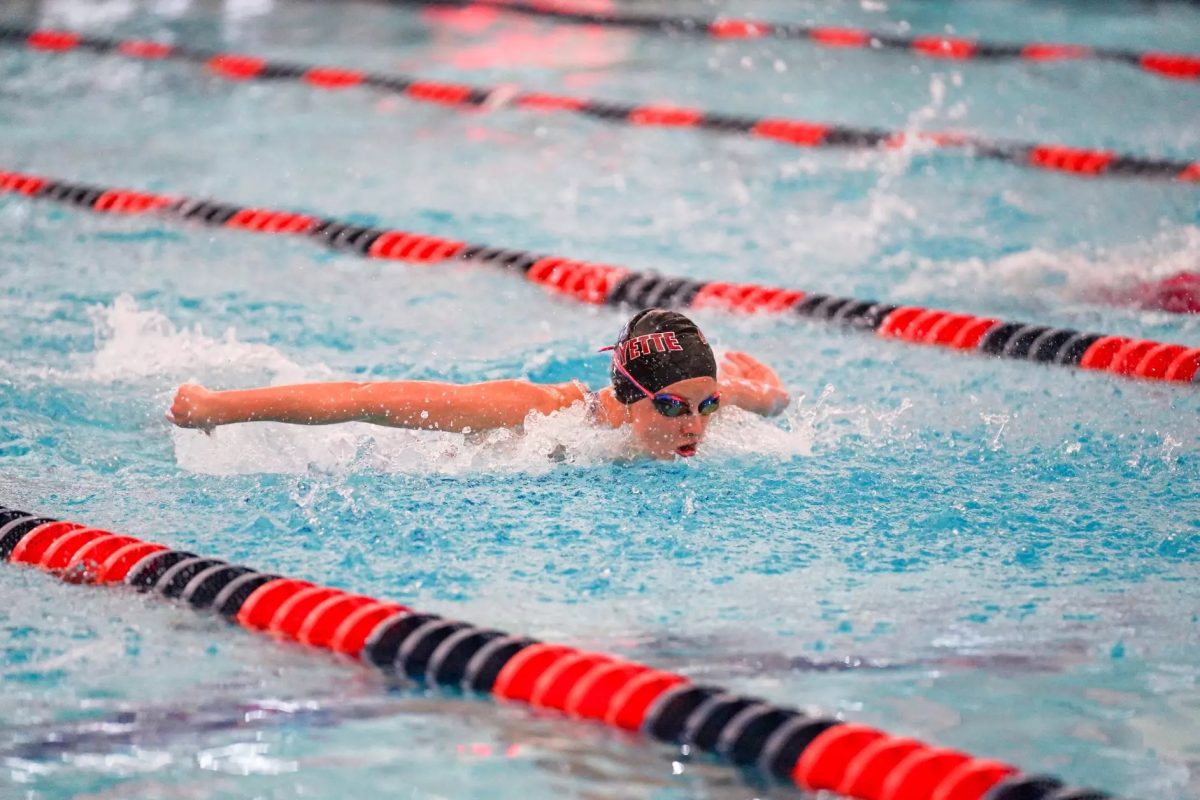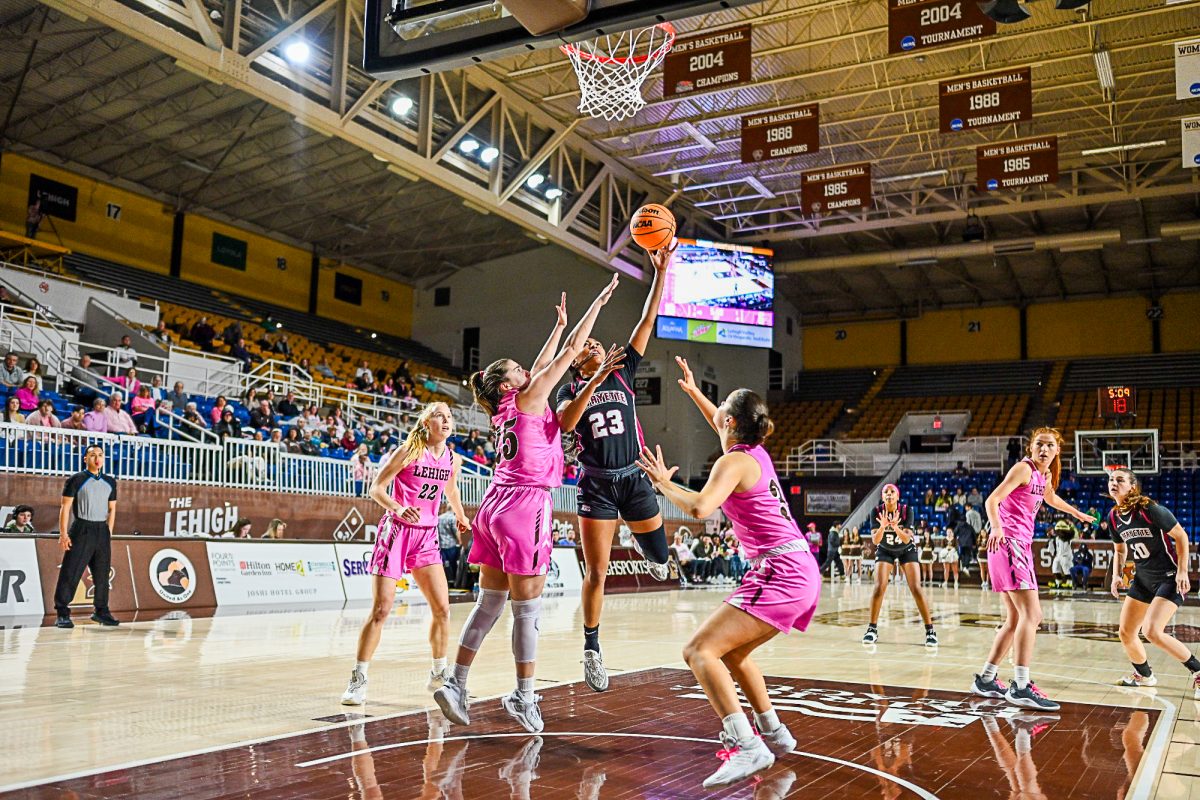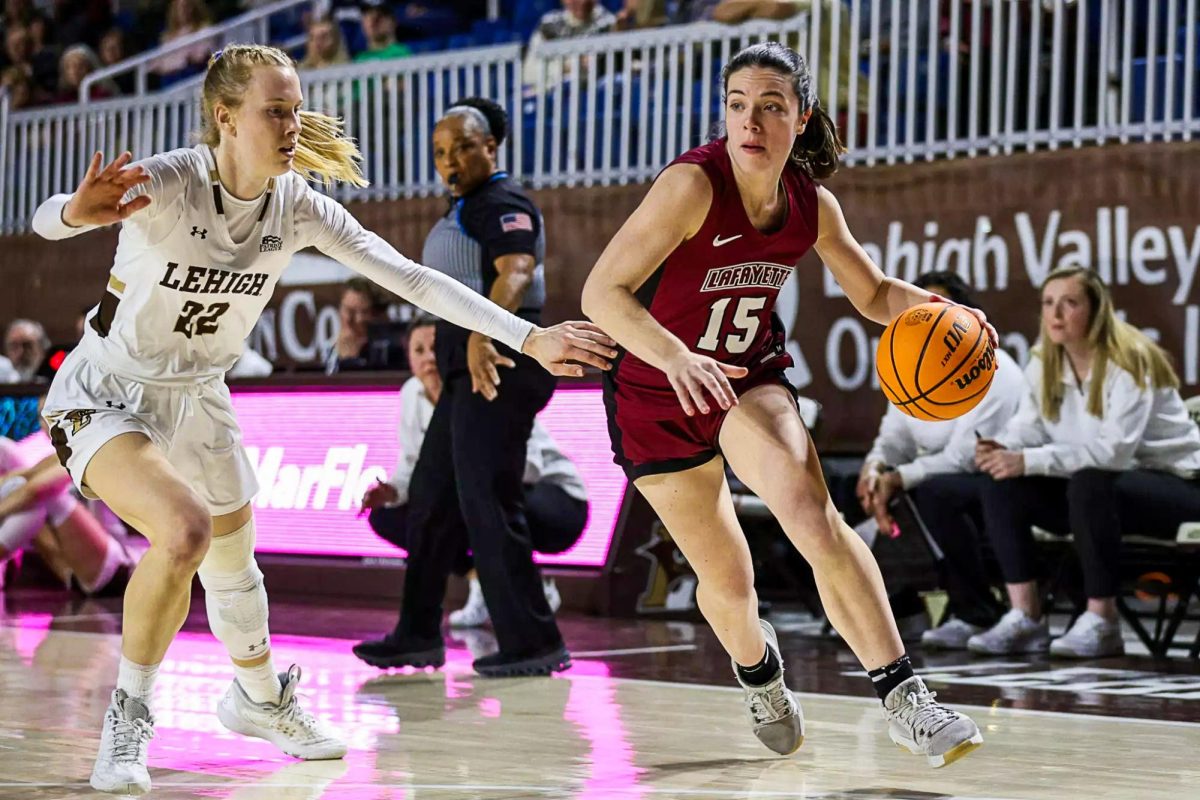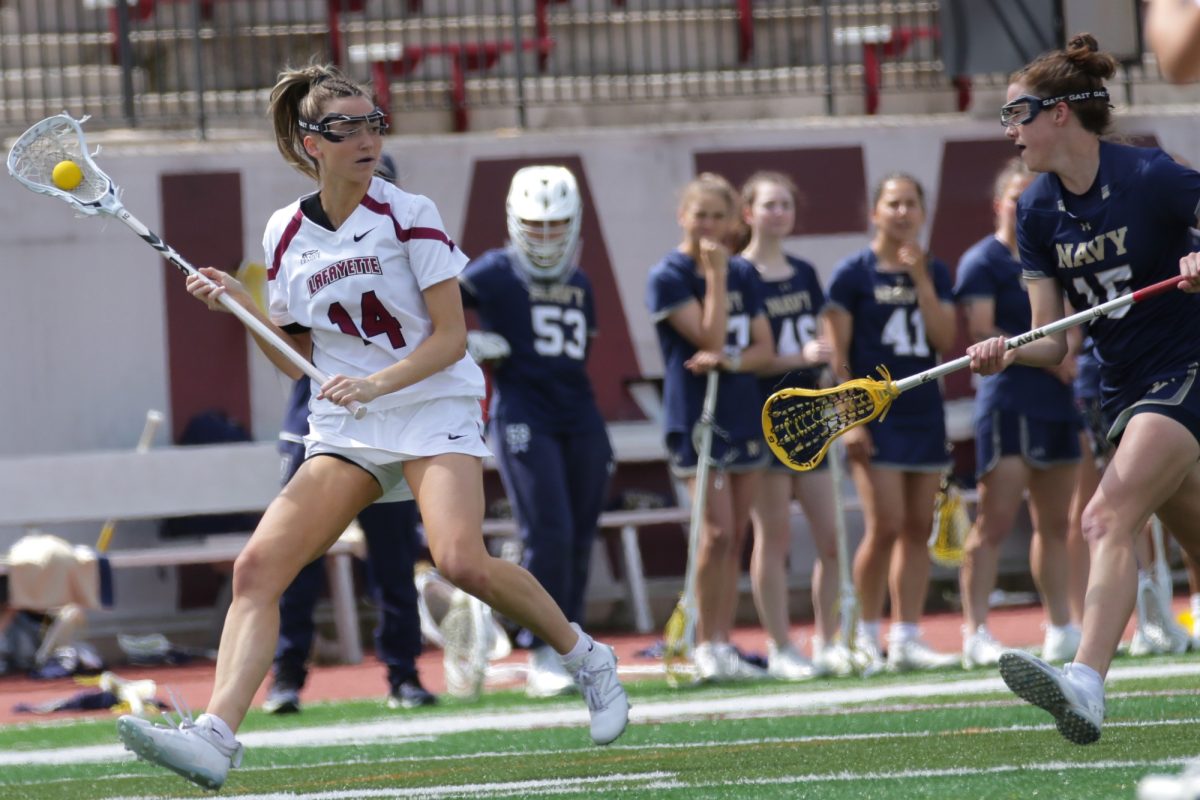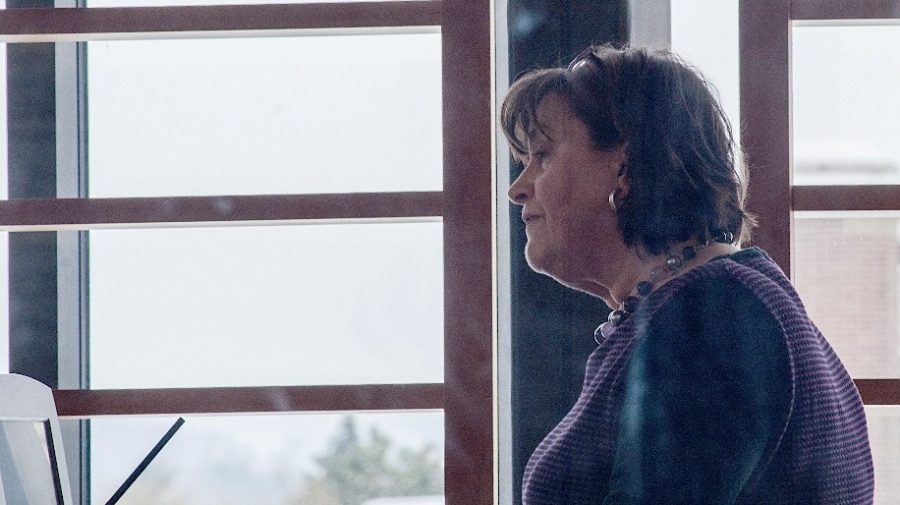Photo by Yinan Xiong ‘16
In 1948, Lafayette was invited to play the Texas College of Minds at the Sun Bowl on New Year’s Day, 1949. However, Lafayette was told if they traveled to El Paso to play in the bowl, David Showell, a halfback on the school’s football team, would not be allowed to participate in the game because he was African-American.
Praising the Lafayette student body’s heroism protesting the racial discrimination by officials of the 1948 Sun Bowl, Diane Shaw, Director of Special Collections and Archivist, spoke Tuesday on the integral role students’ played in the desegregation of the Sun Bowl.
“I’m especially pleased today to be able to talk about this very dramatic incident on the campus where it happened; an incident involving Lafayette College that caused major ripples throughout the world of college football in the 1940s,” Shaw said.
“It is the Lafayette students that are the real heroes of this story.”
Lafayette’s president at the time, Ralph Cooper Hutchison, let the football team and the faculty vote on whether or not to go to the Sun Bowl. The football team voted to go, only after David Showell assured them he would not mind, “because he was used to this,” Shaw said. The faculty resolved that the team should not go, but in order not to “embarrass” the Texans by pointing out their racism, they decided publicly that the team should not go for “a variety of reasons.” The faculty’s decision was held final and the team did not go to El Paso.
“Clearly, the college was not going to call El Paso out on the issue of racial discrimination and this is why no reason was given when the Lafayette student body first got the news” the team was not playing, Shaw explained.
After hearing the news, the students stampeded through Lafayette’s campus and lit a bonfire on the Quad. About 1,000 students marched to the President’s house and demanded a reason to why the faculty turned down their bid in the Sun Bowl. When President Hutchinson explained the situation, the students were outraged, shouting, “We will play if they let Showell play,” Shaw said. The students insisted that the President make a call to Sun Bowl officials to allow Lafayette into the game with Showell.
When President Hutchison made the call, he was told again that Lafayette could not play with Showell participating because of a discriminatory state law barring interracial sports events. Upon hearing this, the students marched downtown, got local radio station to publicize the rally, and sent a telegram to President Truman, reading, “Denied Sun Bowl game because we have a Negro on our team, is this democracy?” Afterwards, the students passed a formal civil rights doctrine in Pardee Hall in favor of racial equality.
The Sun Bowl was desegregated in 1952.
Students who attended the lecture were inspired by the 1948 Sun Bowl protest story and impressed by Shaw’s storytelling.
“I liked how Diane Shaw captured this moment of history in such a captivating way,” Alexis Osei ‘16 wrote in an email. “She is a really good story teller.”
“I think that events like this demonstrate the importance of standing up for what you know is right and having the right priorities,” Anthony Vecchio ‘14 wrote in an email.
Members of the faculty were also moved by the story.
“I think this particular story is important for us to keep near the forefront of our collective memory as a fine example of what it looks like for the Lafayette community to take a stand on an issue and to call our values to action,” Dean of Intercultural Development John McKnight wrote in an email.


